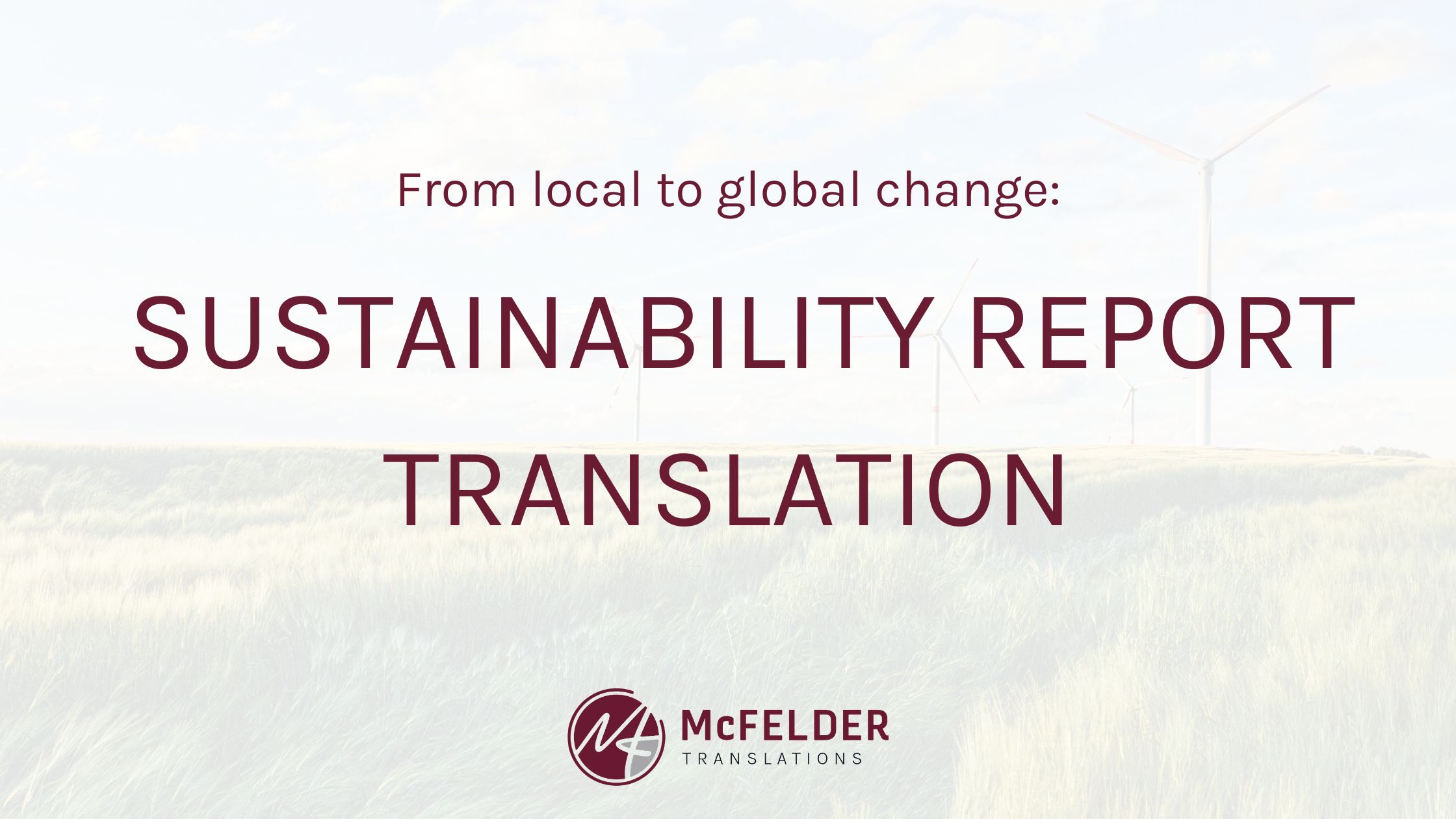To celebrate World Environment Day, along with the one-year anniversary of the EU’s Corporate Sustainability Reporting Directive agreement, we would like to dedicate this blog to the importance of sustainability report translation to foster cross-border resilience practices.
What is the EU’s Corporate Sustainability Reporting Directive (CSRD)?
Since 2014, companies from the European Union have had to publish information related to environmental and social issues, treatment of employees, respect for human rights, anti-corruption, bribery, and diversity on company boards. These reports have been subject to the European Union’s Non-Financial Reporting Directive (NFRD), and only affected large public-interest companies with more than 500 employees.
However, in June 2022, the European Parliament and the Council reached a political agreement on a Corporate Sustainability Reporting Directive (CSRD). This new directive will modernise and strengthen the rules around who should present these reports, and what should they include.
The directive aims to provide investors, stakeholders, and the public with reliable and comparable sustainability information to make informed decisions and drive sustainable investments. It also aims to support the EU’s sustainability goals, such as the European Green Deal and the United Nations Sustainable Development Goals (SDGs).
Who will be affected by the Corporate Sustainability Reporting Standards (CSRS)?
Currently, only large public-interest companies with more than 500 employees are subject to the NFRD standards, which includes over 11,700 large companies in the EU. However, the new CSRD would affect approximately 50,000 businesses, 75% of the EU’s turnover by 2026.
The timeline for the introduction of these new standards is as follows:
- 2024 for undertakings already subject to the NFRD (reporting in 2025 on 2024 data)
- 2025 for large undertakings not currently subject to the NFRD (reporting in 2026 on 2025 data)
- 2026 for listed small and medium-sized enterprises, as well as for small and non-complex credit institutions and for captive insurance undertakings (reporting in 2027 on 2026 data)
Why should companies disclose sustainability and ESG reports?
The CSRD will only affect companies from the European Union. However, in more than 25 counties, companies are already required to disclose information on their environmental, social and governance (ESG) footprint. The list includes countries like Malaysia, New Zealand, and the UK.
Nevertheless, mandatory reporting isn’t the only reason why businesses are issuing this information. Since the adoption of the SDGs by the United Nations in 2015, more and more companies are disclosing how they are working towards their goals.
According to a comprehensive survey conducted for the Edelman Trust Barometer, which included 28 countries and respondents from various age groups, an overwhelming majority of nearly two-thirds agreed that CEOs should be accountable to the public rather than solely to their board of directors or shareholders. This finding highlights a growing expectation for corporate leaders to prioritize public interests and engage in transparent practices that benefit society as a whole.
This upcoming generation of leaders has grown up with a deep awareness of the importance of climate change, witnessing the polar ice caps melting, record-breaking heatwaves each summer, and the destruction of the Amazon due to deforestation. Why wouldn’t they consider this information when making decisions?
How can McFelder help?
To promote companies’ cross-border resilience practices, McFelder Translations offers a variety of sustainability report translation services: from specialised human translation services to neural machine translation followed by specialised human post-editing. We are lucky to have onboard more than 600 translation experts on Environmental, Marine and Life Sciences.
Let’s get started! Contact us and let’s turn your environmental solutions into a global dialogue with your partners about what matters to them.

